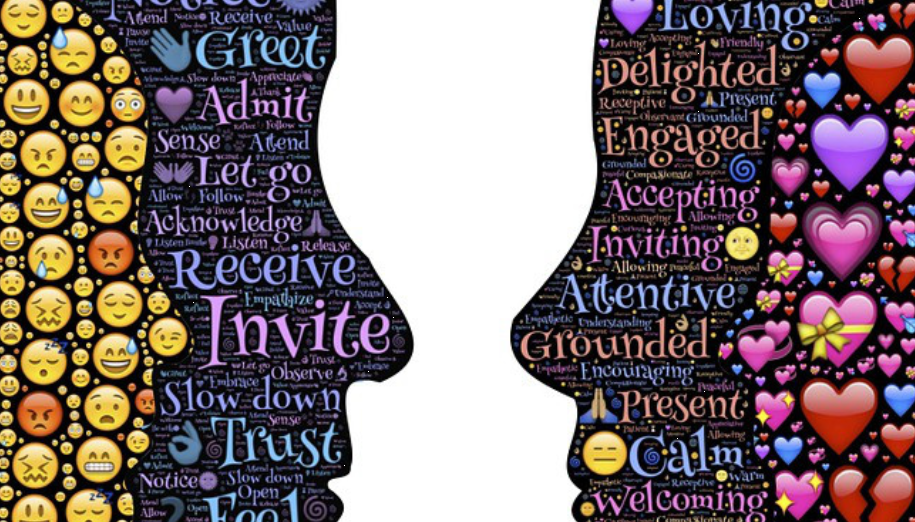
Empathy is overrated. I know this is heresy. Before you light your torch and grab your pitchfork, hear me out.
We live in a world suffused with psychological language. Even in fields that are not traditionally considered to be “touchy-feely,” leaders are likely to be expected to know how to increase their team’s emotional intelligence, help employees build emotional self-management skills or increase a sense of belonging and community.
This is good. My “day job” is focused on teaching others these skills. In fact, my institution has helped lead the creation of an emerging social science entirely focused on how to strengthen relationships between individuals as well as social connections within communities.
In part, this mirrors the positive development of the field of psychology as a whole. As we understand more about the mind of the human person and how we relate to each other, we apply those insights to a wider range of settings – such as workplaces. On the other hand…
We have also seen the rise of popular psychology and an entire industry related to self-help and pseudo-scientific ideas about emotion. These ideas are often based on what we wish were true about people, instead of the reality of human relationships. One perfect example is the perceived role of empathy in conflict.
The ability to understand another’s feelings and thoughts from their point of view is a great skill. Honing your ability to do this will help you make more nuanced decisions and relate to others with more skill and sensitivity.
But here’s the problem. Empathy has become a bit of an idol, a panacea, a magical thing that promises to end all conflict and allow leaders and staff to exist on a higher and more sensitive plane of existence.
As I’ve discussed in this blog before, most people seek to avoid conflict. Accordingly, popular pseudo-psychology has encouraged the belief that if we just had more empathy we’d have less conflict. So, we don’t need to do the difficult work of confronting people on their behavior, which is really unpleasant and scary. We just need to start empathizing more! After all, unlike leading conflict, empathizing makes me feel great about myself and is less risky. Problem solved!
I exaggerate, but not by much in the case of some leaders and workplaces.
Empathy is essential to healthy human relationships, but it’s not a cure-all. The presence of empathy does not negate the need for limit-setting and does not necessarily lead to behavior change.
Simply empathizing changes nothing. Behavior change requires pressure, concrete plans, and a willingness to move beyond talking about feelings and into action. Expression of empathy is a good beginning to a conversation, but it’s not an end unto itself.
Empathy is only one good among many in the list of leadership skills and abilities. An over-emphasis on empathy in leadership can lead to a reluctance to cause others discomfort. After all, if you really empathized with others, you wouldn’t want to cause them discomfort, right?
This is a serious problem in many workplaces. As a leader, a big part of your job is to make other people uncomfortable on a regular basis. Being uncomfortable is a natural part of learning and the development of expertise. And as a leader, you should be the teacher-in-chief before you are the empathizer-in-chief. Be an empathetic teacher, not a teaching empath.
Too much reliance on empathy can even lead to rewarding good work with creepy things like this.
Overplaying the importance of empathy can also lead to the erroneous belief among colleagues that they should never be made to experience difficult, negative or uncomfortable feelings.
Here’s an example from my personal life. I once confronted someone I was close to about their pattern of manipulatively using anger, threats and histrionics during conflict. I discussed how scary, difficult and damaging this behavior was for me and others.
The response from that person was, “How can you say these things to me? How do you think it makes me feel when you tell me things like this?” To which my response was, “Well, I assume you feel bad. And that would be appropriate.” We are no longer close. And that’s a good thing.
The most effective leaders are empathetic to those around them in a general way, while also being able and willing to cause discomfort to others as needed. Growth and learning requires some amount of pain and sacrifice.
None of us feels what everyone around us is feeling, nor should we. That would be really exhausting and unhealthy. We understand the feelings of others. We care about the experiences of others. We listen to others. But their feelings are their feelings and our feelings are our own. How to make sense of that information and what you do with it is what matters most when leading conflict.
Visit IIRP President John W. Bailie's blog, Leading Conflict.
